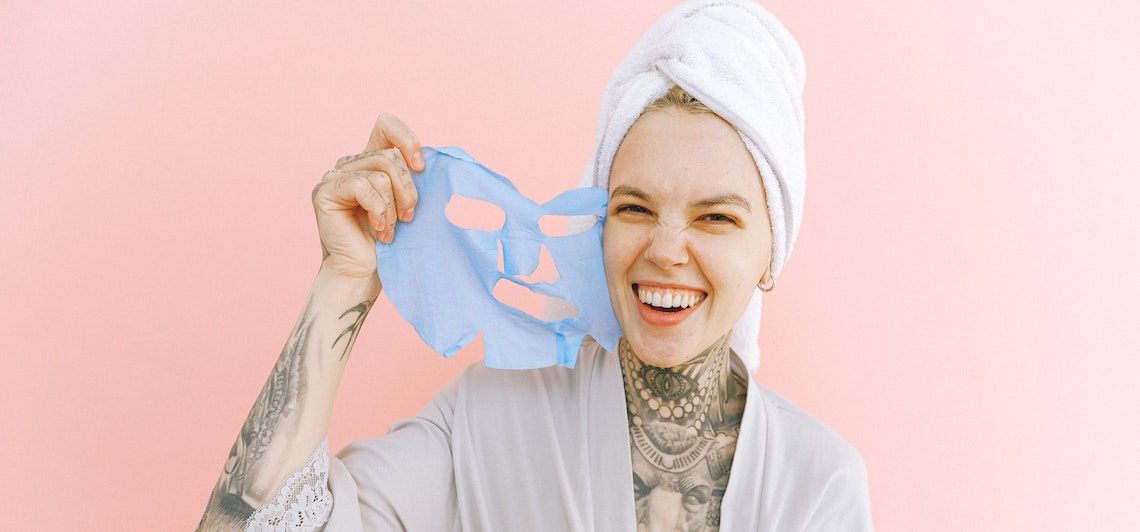Tattoos are quickly becoming the beauty industry’s next frontier of innovation and adoption.
Since mid-2021, tattooing has attracted investor and strategic acquirer attention. In July 2021, a semi-permanent tattoo brand called Ephemeral raised $20 million in funding four months after launch. It offers a proprietary tattoo ink the body metabolizes, with tattoos disappearing in about a year. Then, on January 19, Bic, a manufacturer of disposable consumer products including lighters, razors and pens, acquired Inkbox, another semi-permanent tattoo brand. And in February, a skin-care brand for tattoo maintenance called Mad Rabbit inked a $4 million seed round.
Like wellness, the beauty industry has a knack for co-opting categories and beautifying them into a business proposition. Such is the case with tattoos. In many respects, it makes sense, given that some semi-permanent tattooing like microblading and lip blushing are beauty services. And tattooing itself is often regarded as an art form, with artists like Kat Von D most famously creating a namesake beauty brand that has since relaunched as KVD Beauty.
“We’ve [started to enter] into studios that specialize in permanent makeup. That’s becoming an increasingly important part of our business and the audience we’re catering to,” said Oliver Zak, co-founder of Mad Rabbit. Mad Rabbit offers daily body lotion, sunscreen and body wash, among other products, with the premise of preserving the color and improving the several-week healing process following a fresh tat.
Mad Rabbit and others are tapping into the growing segment. For example, Yelp’s 2022 beauty trend forecast report found that searches for lip blushing increased by 130% year-over-year between Jan. 2021 and Oct. 2021. According to a 2015 Harris Poll, more and more Americans are getting tattoos, with 29% having at least one at the time. For millennials, 47% have one, compared to over 36% of Gen Xers. What was once considered a body modification only popular among the previously incarcerated, motorcyclists and manual laborers is now more fluid among people from all walks of life and is shedding its stigma. A 2018 study published by researchers at the University of Miami and the University of Western Australia Business School saw no statistical difference in earnings or employment level among the U.S. participants with and without tattoos who were surveyed.
“Consumers today crave newness, desire creative freedom and embody authenticity,” Gonzalve Bich, CEO of Bic, said in a press release regarding the Inkbox acquisition. “Inkbox’s temporary tattoos and markers empower individuals to be their continually evolving, fluid selves. The acquisition… [brings] more innovative and high-quality tools to individuals who are not afraid to showcase who they truly are.”
The $65 million Inkbox purchase broadens Bic’s skin creative portfolio, which already includes the temporary tattoo marker brand BodyMark by Bic. Inkbox’s semi-permanent tattoos are skin-safe, easy to apply and last up to two weeks. Individuals can create custom designs or choose from 10,000 artist-designed tattoos. Inkbox was founded in 2015 by brothers Tyler and Braden Handley.
Ad position: web_incontent_pos1
Mad Rabbit launched with $600 invested between its co-founders Oliver Zak and Selom Agbitor and bootstrapped until they were cast on “Shark Tank,” where Mark Cuban ended up investing $500,000 into the brand for 12% equity. Cuban has further invested in subsequent fundraising rounds, including the most recent seed round. The investment is going toward advertising, content creation and hiring senior leadership like Erin Murray, svp of marketing. Mad Rabbit expects to increase sales by 300% in 2022, not including any potential retail partnerships, said Murray. Mad Rabbit’s core customers are almost equally men and women and between 25- and 45-years-old, with 80% of customers having between one and five tattoos, said Murray.
She also said the breadth of people who have tattoos means it is a diverse and inclusive culture, which intersects well with today’s beauty conversations around inclusive communities and lifestyle branding.
“We are looking to plug and play into [the body care] areas of daily skin care using tattoos [as] the entry point into our brand,” said Zak.




